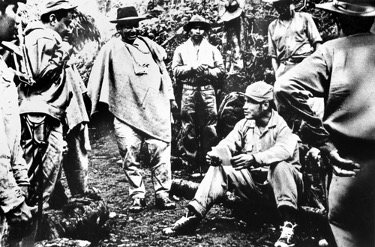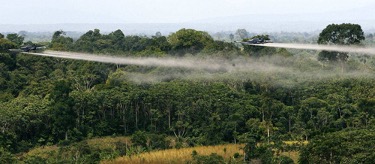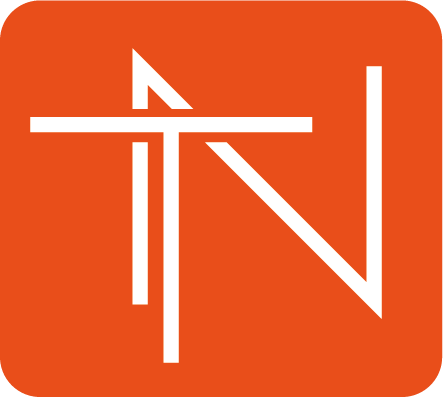This document intends to be a short brainstorm on the War on Terror, the list of terrorist organizations, and our inclusion in it.
Since the 9/11 attacks, the War on Terror has been reinforced, responding to the necessity of replacing the anti-communist struggle of the Cold War. Although for many people the so-called War on Terror is something abstract, there are a lot of people in this world who have felt, in their flesh and blood, the consequences of this declaration of war. It has been a clear pretext to invade Iraq, Libya, Afghanistan, and Syria, with a disastrous humanitarian impact on those countries, as everybody knows.
The list of terrorist organizations, as part of the worldwide war on terror, is based on a completely subjective criterion. That’s to say, there is no clear, overall definition of Terrorism, and the inclusion of an organization into the list corresponds to State interests, political alliances, and economic needs.
This becomes clear when we take a look at the Taliban. In the 1980s, when they were called Mujahideen, they were armed by the US and were considered freedom fighters for a long time. Palestinians are engaged in a legitimate resistance, according to the UN, while they are considered terrorists by Israel. The ANC was a terrorist organization until 2008 and they are now considered legitimate fighters against apartheid. What is it that Hezbollah is on the list, being a legal party in Lebanon, with senators and deputies, and the Greek fascist party isn’t, while the latter has killed activists and threatened unionists?
Therefore, not only the FARC, as an insurgent organization, should be removed from the infamous list. The list shouldn’t exist in the first place, because of the reasons mentioned above. It’s clear that the War on Terror and the list of terrorist organizations have been used to demonize different organizations that are simply fighting against oppressive and anti-democratic regimes. I would like to recall the Universal Declaration of Human Rights:
“Whereas it is essential, if man is not to be compelled to have recourse, as a last resort, to rebellion against tyranny and oppression, that human rights should be protected by the rule of law.”
Or the United States Declaration of Independence, 1776:
“But when a long train of abuses and usurpations, pursuing invariably the same object evinces a design to reduce them under absolute despotism, it is their right, it is their duty, to throw off such government, and to provide new Guards for their future security”.

Weapons are a necessary evil to protect ourselves against a regime that has never allowed the lower class to participate in politics
It’s a fact that we are fighting against such tyranny and oppression; that was not only the reason for the FARC’s uprising but keeps on being the reason for continuing our armed struggle up to today, in spite of what many people may believe or proclaim. We have stated on various occasions, that we are not married to weapons, that’s to say, weapons are a necessary evil to protect ourselves against a regime that has never allowed the lower class to participate in politics.
The murder of Jorge Eliécer Gaitán in 1948 was an example; then, the political genocide of the Patriotic Union in the nineteen-eighties; and nowadays, union leaders, human rights defenders, leaders of grassroots organizations, and so on, keep on being killed. In the news you only read the top of the iceberg about such human rights violations.
There are a lot of misunderstandings about who we are, what we want, and why we are doing it using weapons, not in the last place caused by the big media corporations, who generate public opinion.
The government never responded
Who in the world today knows or has read anything about the FARC’s pilot project, presented to the Colombian government in the year 2000, to start the substitution of coca crops in Cartagena del Chairá, one of the most affected areas by coca crops? Naturally, the idea was to provide infrastructure, housing, education, and all the necessary things to make such substitution feasible for the peasants of the area.
The government never responded to our proposal. All the contrary, they reinforced the tactic of fumigation of the coca crops, using glyphosate, consequently generating a huge humanitarian crisis in peasant and indigenous areas, affecting legal crops and displacing entire communities.
During the Caguán period, the FARC led many projects on housing, infrastructure, and education, projects which were immediately bombed by the Colombian air force after 2002, to present the area as a disaster, caused by the FARC.
It’s clear that the inclusion of Colombian guerrilla movements into the list of terrorist organizations of the European Union has been suggested by the United States. There are no valid grounds why the FARC would be included in such a list.
If the FARC-EP really were a terrorist organization without any political grounds, then what would the Colombian government and the FARC-EP be talking about at the peace talks? The mere issues of the Agenda show our political essence; would there be any need to talk about agrarian reforms with a terrorist organization? About political participation? About mechanisms to countersign the agreements? Would there be anything to talk about with an essentially terrorist organization?
On one hand, the Colombian government and its media want the world to believe that FARC has no support at all among the civil population. On the other hand, they are constantly arresting, attacking and murdering people who are suspected to be FARC supporters.

While they treat the coca- and poppy growers and their consumers as criminals, State institutions are accomplices of the activities of big drug cartels, whose existence depends on the connivance of the authorities
On one hand, they call us “narco-guerrilla” whenever they can and want people to believe that the real problem behind drug trafficking is the FARC, stubbornly denying the drug problem as a SOCIAL problem, both for the poor peasants who grow coca leaves, as for the -evenly poor- small drug-dealers who live in the streets of Chicago or Amsterdam. While they treat coca- and poppy growers and their consumers as criminals, State institutions are accomplices of the activities of big drug cartels, whose existence depends on the connivance of the authorities.
My goal is not to convince people of our role as “the good ones” in the movie. I just think the social problems in Colombia should be measured in their right proportions; that’s why the FARC has proposed a Commission of Review and Clarification of the Truth about the History of the Internal Conflict in Colombia. It’s obvious that such a long conflict has caused victims from both sides and we believe that only through serious, impartial investigations, we will be able to start a process of national reconciliation and reach a long-lasting peace with social justice.
This is the moment to undertake action regarding our inclusion in the list. Times have changed; the peace talks are a step in the right direction. Our elimination from the list of terrorist organizations would be a significant move towards an inclusive society, in which – I’m sure – the FARC-EP will play a positive role as a political movement.
